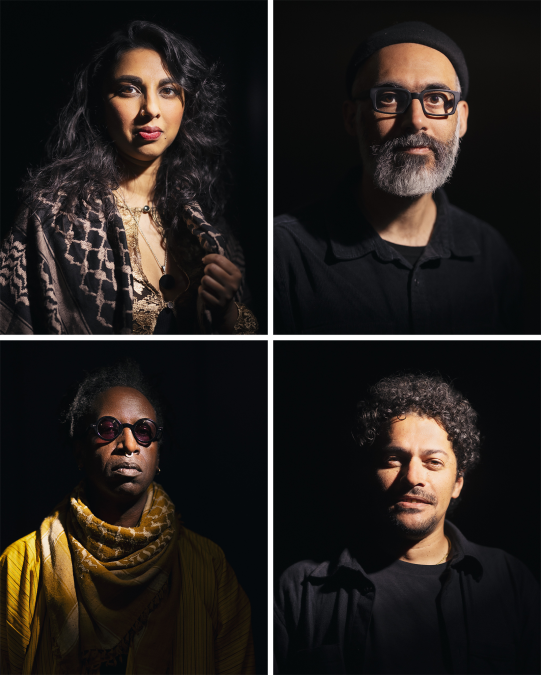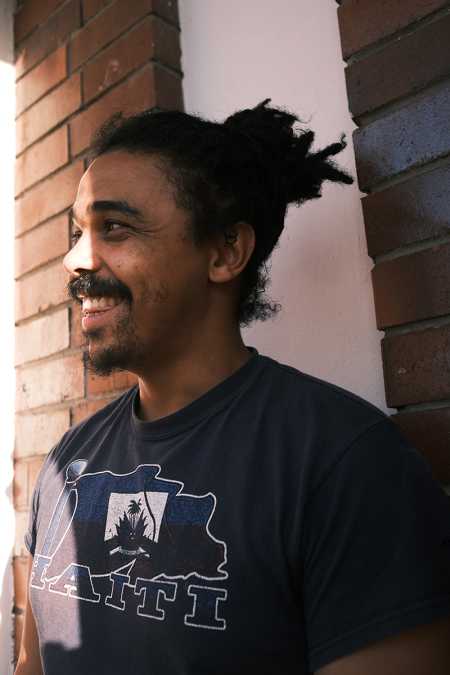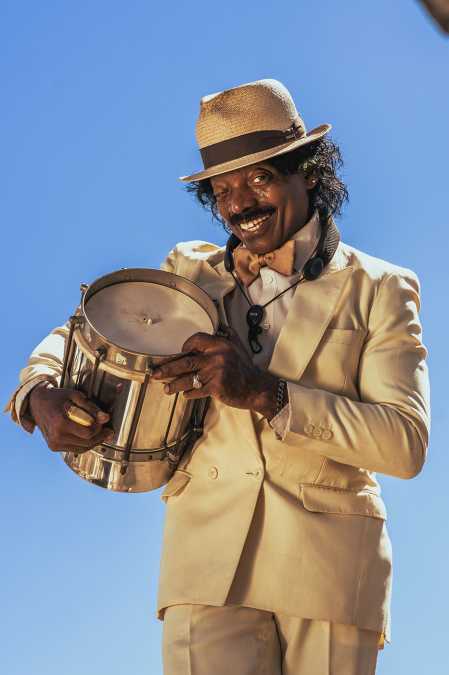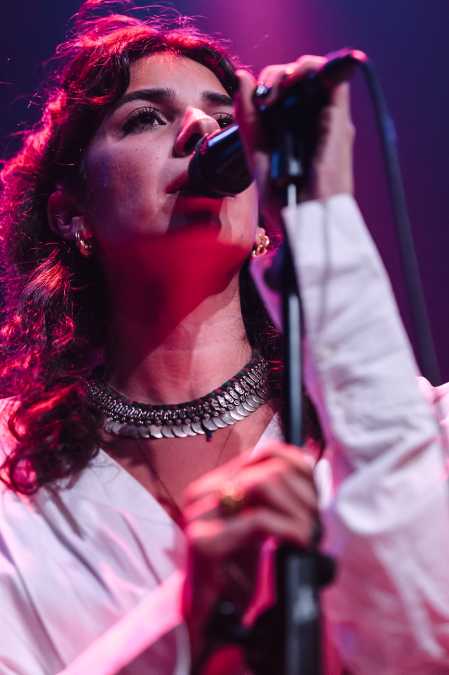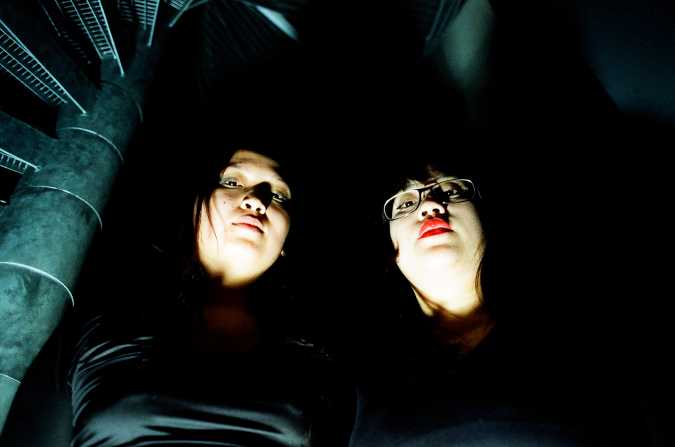COSMOS: Behind the Scenes in Athens with stegi.radio
In 'Behind the Scenes', COSMOS dives into local stories from across the world together with our global partners.
Interview by Larry Gus
Photography by Isidora Charmpila, Daniel Peace and stegi.radio
LG
All right. Let's properly introduce ourselves. My name is Panagiotis.
VB
My name is Yorgos, but people who know me call me Giorgio {laughs}. No, they call me Voltnoi. The name was given to me by a friend. I was always playing around with electronic sounds, so: Volt. And “neu” means “new” in German. So it meant something like “new electronic sounds”.
LG
Great name, good alias. A name like that follows you everywhere, you cannot get rid of it even if you wanted.
VB
Yes. People call me “Volt” all the time. “Volt, where are you?”
LG
Like the food delivery service? That makes things even weirder! Do you use this service here in Athens?
VB
Yes, but that’s called “Wolt”. You know, because I'm a graphic designer, I am always looking at how things are presented. And I have a theory that this food service – the logo, the brand – comes from a doggie bag from Breaking Bad. In the series, the main character is Walter, "Walt", and his wife writes his name on a bag.
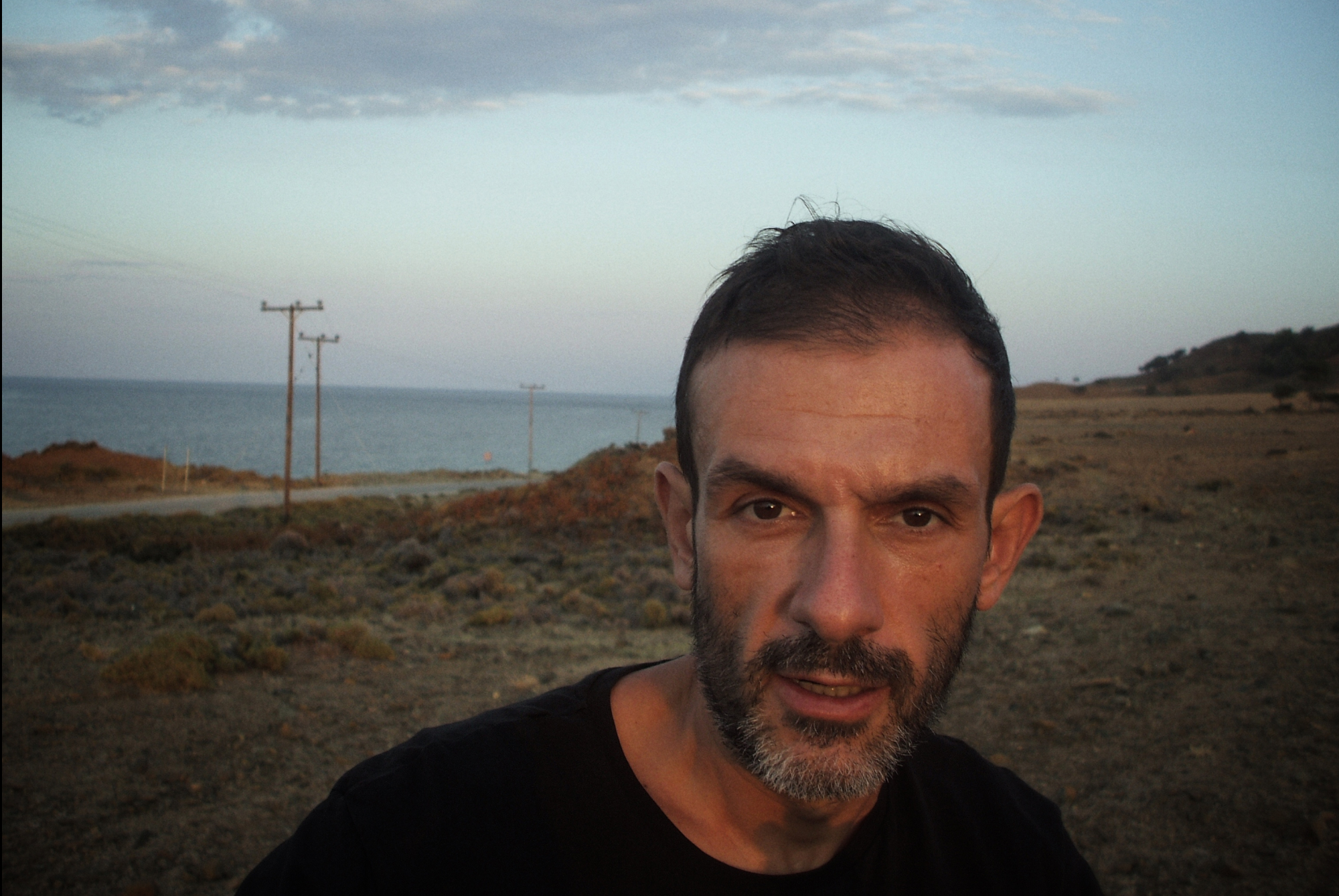
LG
Makes absolute sense. Do you enjoy watching tv series’ in general?
VB
Yes, but they have to be British. Ideally they play in London, because I spent so much time there.
LG
How long did you live there?
VB
All of the 1990s. I was there when Aphex Twin and Autechre were happening. When jungle came out and Björk blew up. Once a month, there was a night at ICA called Electronic Lounge. There, I got to know a lot of musicians. The scene wasn’t that huge.
LG
I spent some time in Milan in the 2000s, five years. That’s obviously different from London in the 1990s. Compared to that, how do you feel about what is happening in Athens right now, in the context of creativity? I also have an answer, a pessimistic one. But nevermind.
VB
It's just a different time. Back then there was no internet. There was no such thing as a collective memory stored on hard disks. The only memory that you had was through records and books. And you had to have a lot of money in order to access music all the time.
LG
Another thing about London: I know you like the writer J.G. Ballard. I feel like after he died, the sociological aspects of his writing are now everywhere to witness, especially in Athens. Ballard’s wife died early, and then he lived in the suburbs, literally, in this small room overseeing the garden. And he was picking up his kids from school every day. Not even bourgeois, just like the most middle class nothingness…
VB
It must’ve been insane. He was in a small town south of London. Suburbia. Nothing is happening there. No one wants to live there.
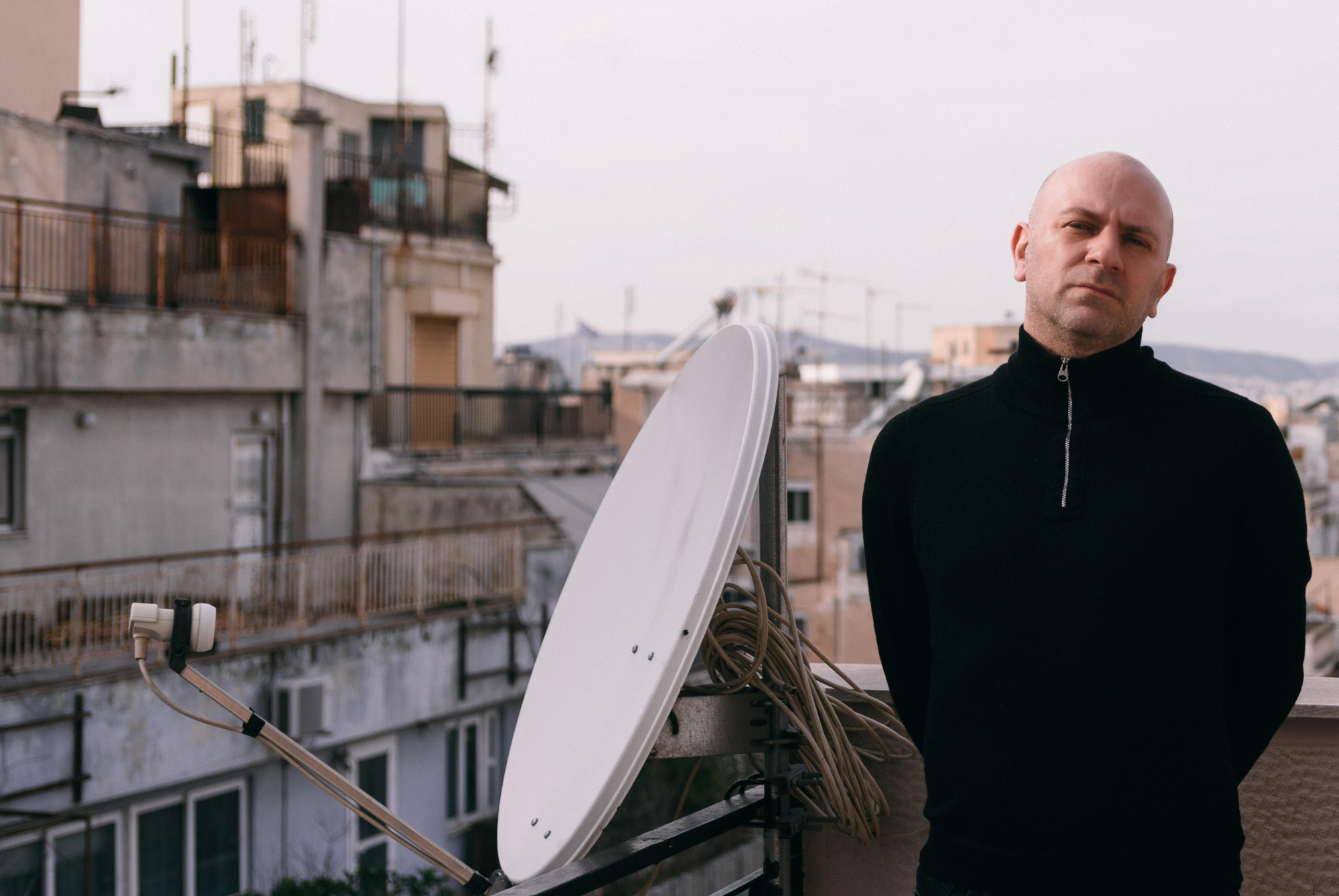
LG
Do you sometimes feel like what we are doing here in Athens, in Greece, is happening in the suburbs of Europe?
LG
But hey, don't you think that sometimes in Athens we are not just in the suburbs… but in the sewers… {laughs}?
VB
No, no, no. You're a fucking pessimist, that's why {laughs}. I'm trying not to be a pessimist.
LG
So, you’ve mostly been running stegi.radio for the past years. How did that happen?
VB
When I got back from London, we did this place called BIOS. At the time there was only rock and pop music in Athens. We invented our own space with a couple of friends where we could invite musicians and artists from abroad who played with electronic instruments – analog or digital. At the time, the MacBook came out and it was a revolution for everybody. So we had laptop artists, but also analog artists like Pansonic or Fennesz come to Athens.
And that was mind blowing for the new, young generation. Nobody was inviting people playing that sort of music in Athens then. I think that we created a small scene. There had already been people listening to these records, but they never had the opportunity to pay five to ten Euros and see those artists perform.
LG
Did you have any blueprints?
.jpg)
VB
Before us there was this club called Rodon, and they booked artists like the Ramones, Sonic Youth, Lydia Lunch, The Residents, really amazing artists but from a different era. From a different way of expressing themselves.
LG
Even for me, BIOS was legendary. And I wasn’t living in Athens at the time.
VB
BIOS was great because it was about combining aesthetics and different ways of curating. Although we had this love for electronic music, we were curating all types of nights. For example, we did a three-day festival about Tokyo: Japanese music, food, drinks, and images across the building. We also did a two-day thing about Serge Gainsbourg with his music and films. BIOS really was a gamechanger in the in the cultural scene of Athens because we were totally independent. Those three years that we did stuff together were really amazing.
LG
How did you move on from BIOS?
VB
The evolution of BIOS was Synch Festival, which evolved into a major festival of electronic music. I was running the media arts department for them. And then I started playing music with this audiovisual group called The Erasers. That was like a live cinema group, a music group, a theatre group, everything at the same time. A “Gesamtkunstwerk”, as Wagner said. That went on for like 10 years, from 2005 to 2015. And then I thought, okay, it’s enough.
We wanted to focus on locals but also the larger scene spread all over Greece. And not just electronic and dance music… we wanted to cover the improv and traditional scene as well, and things like Laika, which is Greek pop music from the 1960s, 70s, and 80s.
We still had connections with a lot of artists we had worked with before. People like Optimo and Moor Mother came to the radio early on. The idea was to have a political aspect, too. We got in touch with the different immigrant communities in Athens to talk about their everyday life in the city. Honestly, I think what we have done so far is not a very special per se. We are just the glue between people.
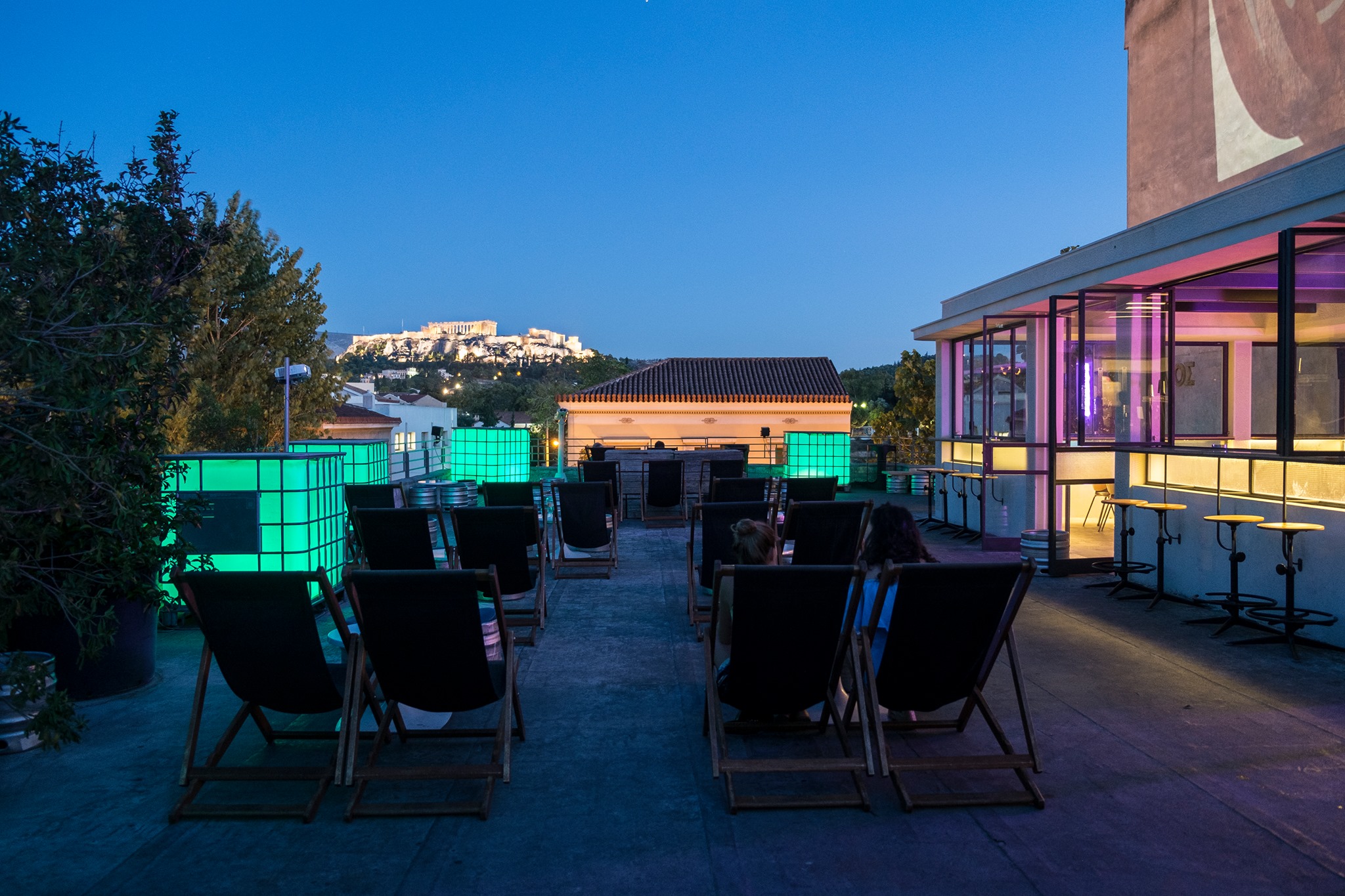
LG
Listening to the radio, it feels like a map is emerging. You present different pieces – but it all feels representative of Athens. Someone who’s not from here can get a good grasp of what is going on in Greece, and in Athens specifically.
VB
The idea of mapping the scene and making connections with other cities of the periphery is at the core of our curation. We want to build bridges with Istanbul, Cairo, Marseille, Tunis, Barcelona, you know, all the cities around the Mediterranean Basin, and then connect them with Berlin, London, New York… Because we have the opportunity with the internet and with our artists to make these interconnections.
LG
Have you also done things in other cities? I know that you’ve done something in Ioannina…
VB
Yes, that was part of a major exhibition with the Onassis foundation. For a whole month we had over 150 events. Ioannina is a city in the north of Greece.
LG
It’s an amazing place!
VB
Yes, with a lake like Geneva…
LG
… and a huge musical history, the whole region.
VB
Yes. You're in this melting pot of different cultures, with the Jewish community, the Ottoman community and the Greek community living together with no problems. You can really see traces of different cultures and religions.
Anyways, we did this thing in Ioannina, but also in Turin, in Milan, Madrid, and we are gonna do things in Lyon, Cairo, and Alexandria. The digital connections are done through the community radio, but we always want to do physical events as well. We want people to get to know each other and exchange ideas, not only music, but about the way they live their lives.
VB
Yes, this is the idea. We’re trying to bring those different circles and subcultures closer – if they still exist as such, subcultures.
LG
Why would they not?
VB
Because subcultures have disappeared with the advent of the internet. But this is a different discussion.
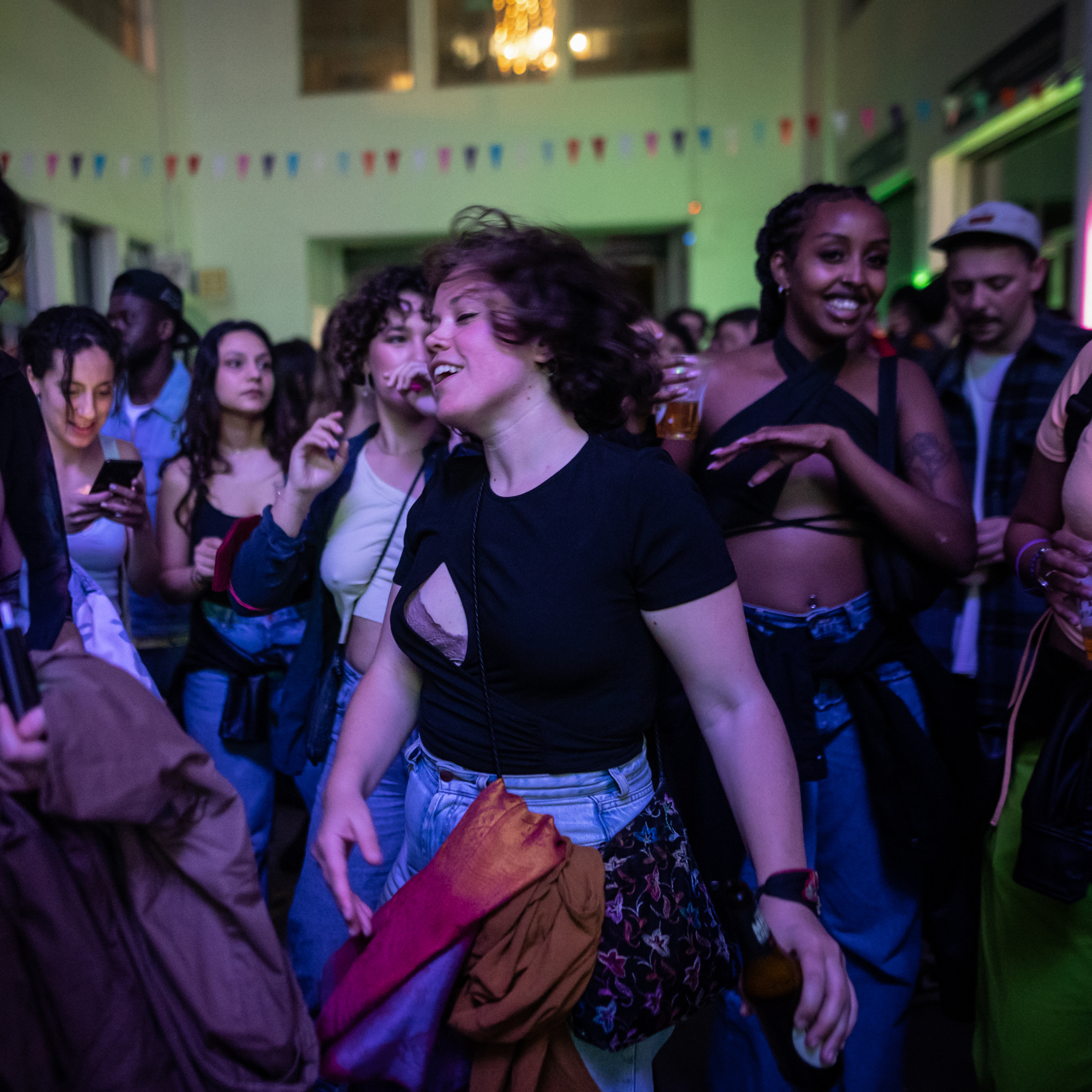
LG
I still think that here in Athens somehow there are these smaller scenes. And I think it’s generational. Of course, we’re totally against ageism, but…
VB
No, no, I'd say it's not about ageism. But during the 1980s and 1990s, the distinction was really easily made. There was new wave, heavy metal, rock... and the dress code was really distinct, too.
But with the advent of the internet, everything went really fast. Subcultures didn't have time to evolve over seven or ten years. Let’s say something was developing in Seattle, or industrial music in Vancouver. It took a while until people got the music on tapes, and then there was probably distribution of the records in, say, Belgium. Then the Fanzines came and spread the news in Belgium and from Belgium to Berlin, and from Berlin to Athens. It took like a year to reach us. But now with the internet, this is all instant.
LG
Can you describe one typical day that you have in Athens?
VB
Wake up: eight o'clock, have coffee. Check the first stream of emails. Most of the emails have to do with the programming we're doing. Both for the radio, but for the cultural center as well. Then I have to decide on some graphic design for our events.
Then I'm heading to the office where we're discussing a lot of production matters, and how we're going to produce the events. And what the set design will be. I really like to be involved with set design nowadays. As a graphic designer, I like to see things in three dimensional aspects as well. I enjoy any technical aspect of a production, whether it is sound, or lights, or video.
LG
With that in mind: how was the takeover that you did recently at the Onassis Stegi headquarter?
VB
Yes, that was for the three year anniversary of stegi.radio. We had the idea of taking an old building and turning into into something else. The main stage usually hosts classical theatre for more conservative kind of productions, operas and such.
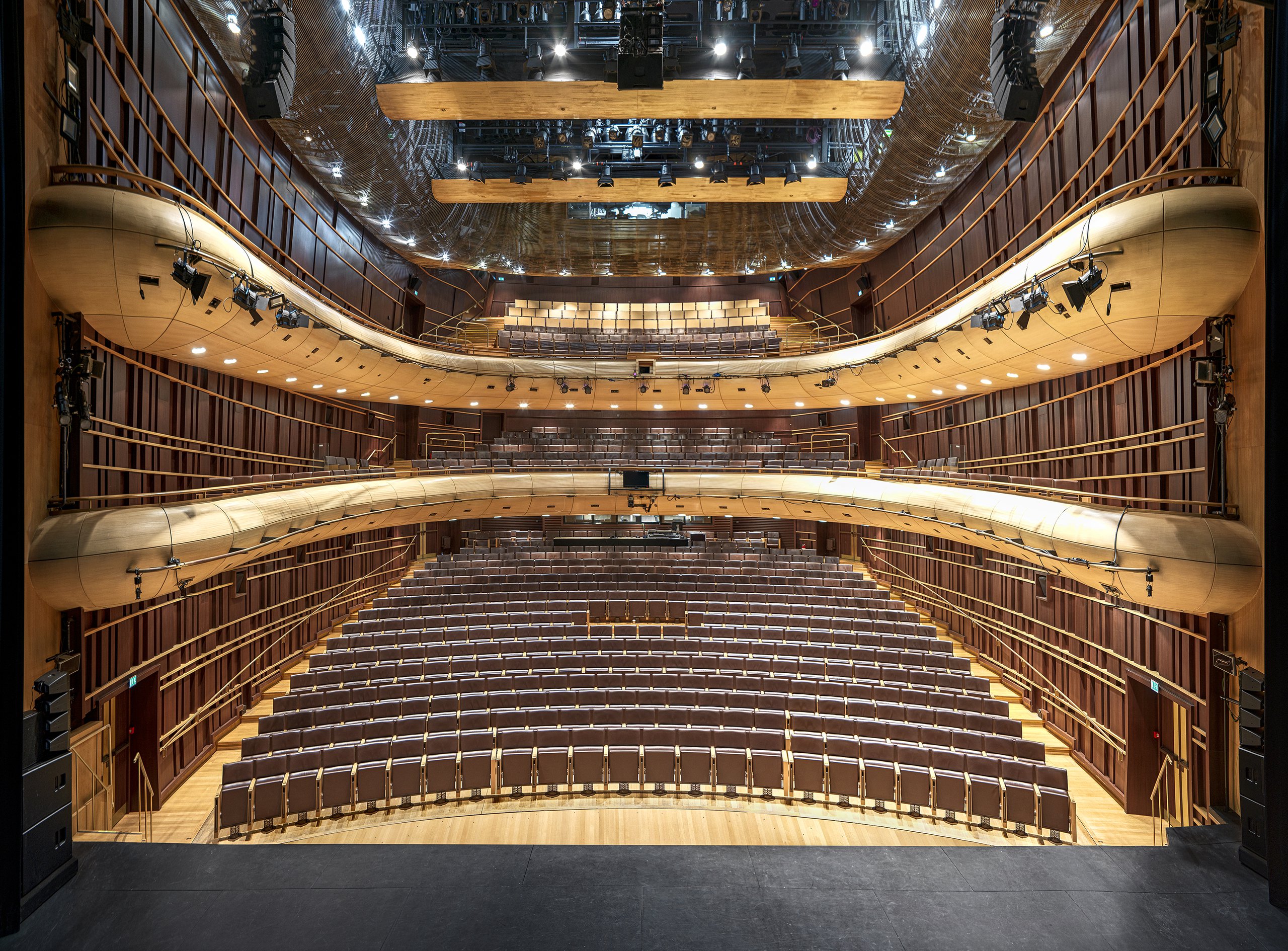
LG
I have one question: were people smoking in there?
VB
A couple maybe. You know, the Greeks are not like the Dutch, because when I was at Le Guess Who?, there was a balcony for you to smoke outside. But inside the building, I didn't see anyone even vaping. In Greece, as you know, it’s not that easy to ban smoking.
LG
I can't stand it, the smoke… I cannot stand it. It's really hard. Hey, how do you actually find the artists for the radio? Is it through personal connections, do you go to underground shows all the time…?
VB
There are many ways. For the start we asked friends, like Bill Kouligas (from PAN) in Berlin, some friends from London, from Milan. They connected us with emerging DJs and radio producers we didn’t know. And as we started transmitting and people could listen to our selections and how the radio sounded, they started sending us demo mixtapes.
LG
So you actually listen to submissions!
VB
We have a really heavy schedule, but we're trying to listen to the things that people send us. However, the personal, more specific way is easier. Like, okay: Panagiotis wants to do a show about traditional Greek music from Kalamata. Lou wants to do something about new Bristol bass music. Okay, let's do that. That’s easy.
LG
Like what?
VB
We started as a radio station during the pandemic, through our laptops, and from our homes. We never had a studio. So the next step is that we are moving into a space that will be in the center of Athens, in Kypseli. So we're going to have our own studio, workspace and editing suites. Everything will come together.
LG
Would you consider acquiring an FM frequency for terrestrial radio? Has this ever crossed your mind? I don’t even know how that works.
VB
One one hand, it's a really expensive thing to do. Plus, the radio we are making is totally different from the terrestrial FM mainstream radio. These radios don’t have a lot of shows and not a lot of people who produce shows. We have like 160 people doing a show, monthly, and 200 guests every year. That means handling 350 people every year.
Running a “proper” radio station is different, because people want to listen to the same voice, the same jokes. Our approach is more archival. You can listen to the radio while you work, but you can also go to our archive and and learn all about Greek traditional music, about Rebetiko or the history of Detroit techno, or Turkish progressive rock. On an FM radio station, the broadcast disappears after it has been played. Our broadcasts are always archived.
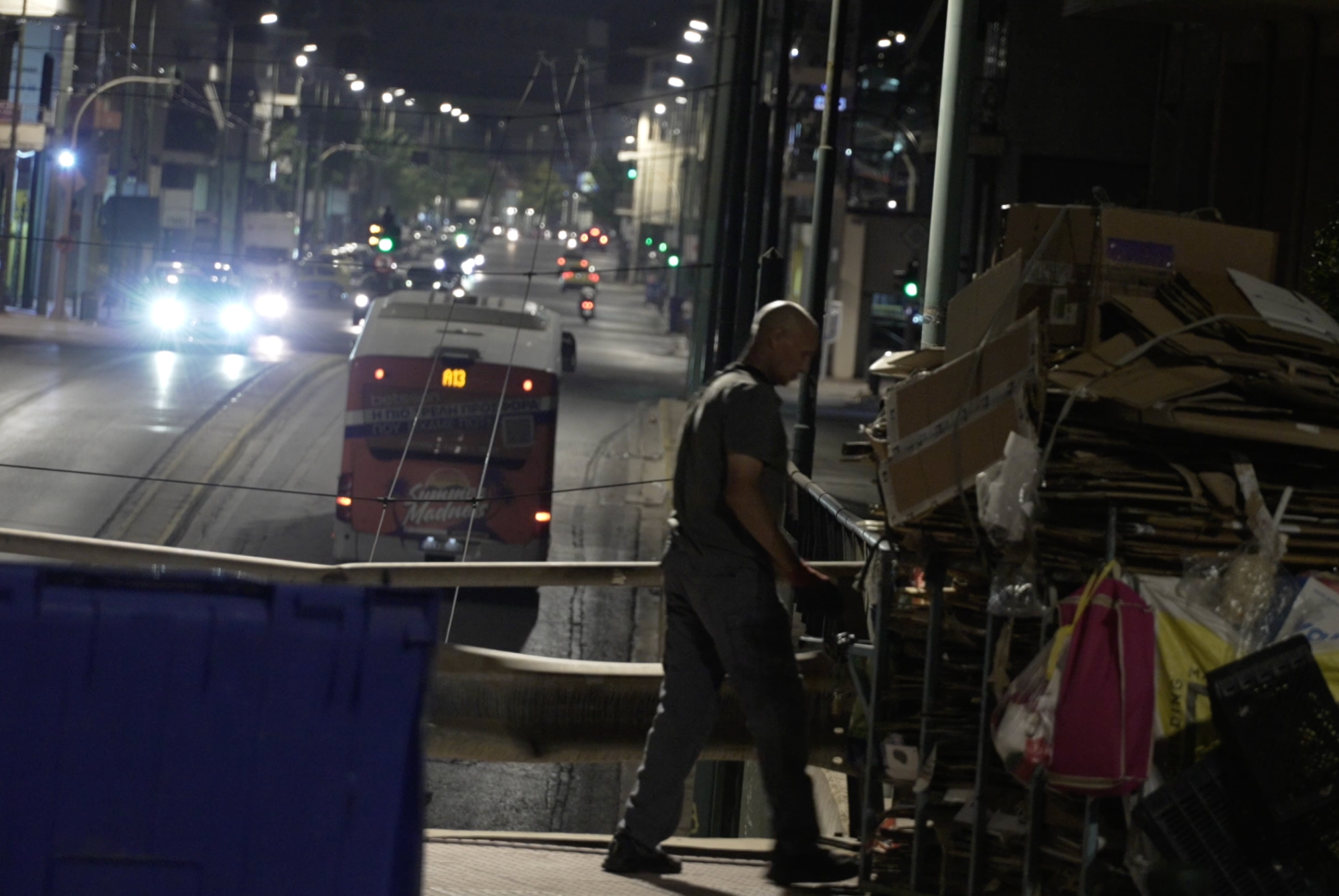
LG
My final question is: why do you come to Kypseli? I live in Kypseli by the way.
VB
Because the Foundation invested in a building there. And then the radio came and they started thinking about how the radio could be in this place. It's all by accident, nothing planned.
LG
Kypseli is changing rapidly. It's nice and it's weird at the same time.
But during the night it is totally quiet because of the hotels. It’s different from London, where you have this urban void in the financial, economical center. Nobody lives there. But this is happening in Athens with all the hotels.
LG
Perfect. I think this is all perfect.
Larry Gus is the music and performance alias of Panagiotis Melidis. He's been releasing radical, sample-based psych pop in English and Greek, and more recently, he's brought his sound art and writing into the world of film and TV. Every Step First Step – Every Step Death is his archive for previously unreleased music, which he regularly updates.
Voltnoi Brege (AKA Yorgos Konstantinidis) is a multidisciplinary artist, musician, and curator. As the artistic director of acclaimed community hub stegi.radio, and the music curator of the Onassis Foundation, he has been a pivotal figure of the Athens scene for decades.
This article is part of the COSMOS series ‘Behind the Scenes’, in which people from across the world discuss their local cultural scenes and their creative processes.
Are you interested in collaborating with COSMOS to share your local cultural scene? Please let us know via cosmos@leguesswho.com.
.
